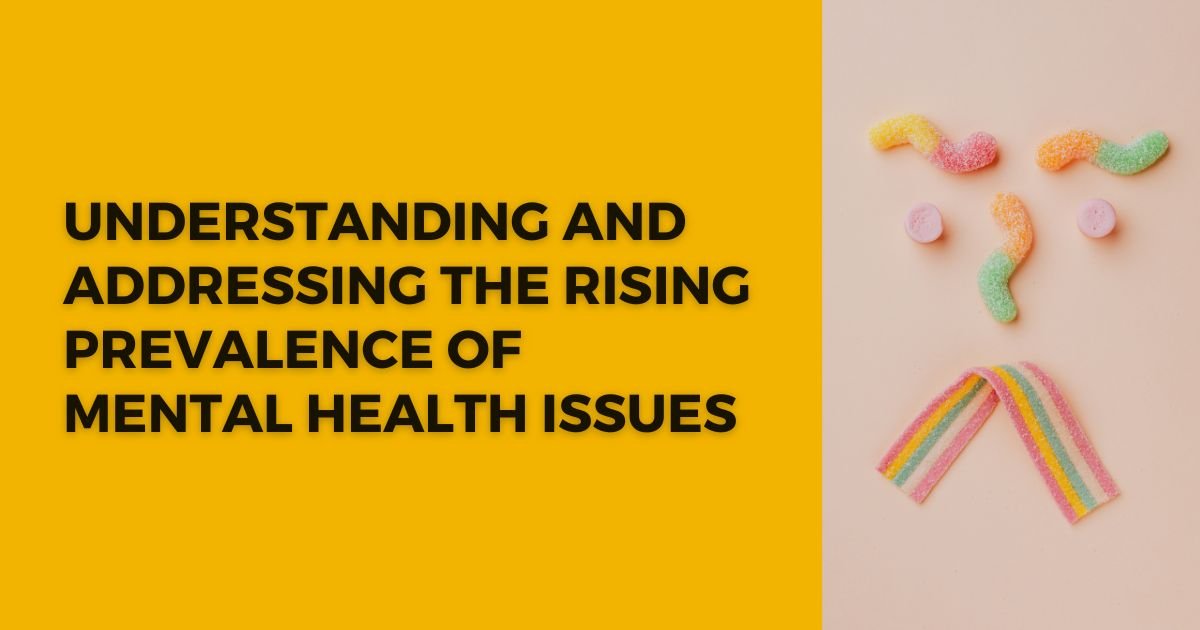Mental health is an issue that affects millions of people worldwide, yet it is still widely stigmatized and often misunderstood. It’s crucial to raise awareness about mental health issues, so that people can recognize the signs and seek the help they need.
When we talk about mental health, we’re referring to our emotional, psychological, and social well-being. It affects how we think, feel, and behave in everyday life. Just like physical health, mental health is essential for a fulfilling life. Mental health issues can arise due to a variety of factors, including genetics, life experiences, and environmental factors.
Table of Contents
What is Mental Health Issues?
Mental health issues refer to a range of conditions that affect a person’s emotional, psychological, and social well-being. Mental health issues can impact how a person thinks, feels, and behaves, and can interfere with their ability to function in daily life.
Examples of mental health issues include depression, anxiety, bipolar disorder, schizophrenia, and post-traumatic stress disorder (PTSD), among others. These conditions can arise due to a variety of factors, including genetics, life experiences, and environmental factors.
What causes Mental Health Issues?
Mental health issues are caused by a combination of factors, including genetic, environmental, and life experience factors.
Genetics play a role in mental health issues, and some conditions, such as bipolar disorder and schizophrenia, tend to run in families. However, genetics alone are not enough to cause mental health issues, and other factors must be present for a person to develop these conditions.
Environmental factors, such as traumatic experiences, chronic stress, and substance abuse, can also contribute to mental health issues. Traumatic experiences, such as physical or emotional abuse, neglect, or violence, can lead to conditions like post-traumatic stress disorder (PTSD). Chronic stress can also impact a person’s mental health, leading to conditions like anxiety and depression. Substance abuse, including alcohol and drug use, can also worsen or cause mental health issues.
Life experiences, such as childhood experiences, relationships, and work-related stress, can also impact a person’s mental health. Negative experiences in childhood, such as neglect or abuse, can increase the risk of mental health issues later in life. Unhealthy relationships, including domestic violence, can also lead to mental health issues. Work-related stress and burnout can also impact a person’s mental health and lead to conditions like anxiety and depression.
How to help someone with Mental Health Issues?
If you know someone who is struggling with mental health issues, there are several things you can do to offer support and help them get the help they need.
- Educate yourself: Learn about the mental health issues your loved one is experiencing. Understanding their condition can help you to offer better support and be more empathetic towards their struggles.
- Listen: Be a good listener and offer a non-judgmental space for your loved one to share their thoughts and feelings. Let them know that you care and are there to support them.
- Encourage them to seek help: Encourage your loved one to seek professional help from a mental health provider. Offer to help them find a therapist or support group, and offer to accompany them to their appointments if they would like.
- Help them with practical tasks: People with mental health issues may struggle with everyday tasks, such as cooking or cleaning. Offer to help with practical tasks to alleviate some of their stress.
- Be patient: Recovery from mental health issues can take time, and setbacks are common. Be patient with your loved one and offer them support and encouragement along the way.
- Take care of yourself: Supporting someone with mental health issues can be emotionally taxing. Make sure to take care of your own mental health by seeking support from a therapist or support group, and taking time for self-care activities.
Overall, supporting someone with mental health issues requires empathy, patience, and understanding. Encouraging them to seek professional help, offering practical support, and being a good listener can all help them to manage their mental health issues and improve their quality of life.
How many Teens / Students have Mental Health Issues?
According to the National Alliance on Mental Illness (NAMI), approximately 1 in 6 youth aged 6-17 years in the United States experience a mental health disorder each year. Additionally, the National Institute of Mental Health (NIMH) reports that approximately 25% of college students have a diagnosable mental health condition.
Common mental health issues among teenagers and college students include anxiety disorders, depression, bipolar disorder, eating disorders, and substance abuse disorders. These conditions can significantly impact a young person’s academic and social life, making it essential to recognize the signs and seek help when needed.
It’s important to note that mental health issues are common among youth, and seeking help is a sign of strength, not weakness. With the right support and treatment, many young people with mental health issues can recover and lead fulfilling lives.
Why is it important to address Mental Health Issues?
It is important to address mental health issues for a number of reasons. Here are a few:
- Improved quality of life: Mental health issues can significantly impact a person’s daily life, including their relationships, work, and overall well-being. By addressing these issues, individuals can improve their quality of life and increase their ability to function in their daily lives.
- Reduced stigma: Addressing mental health issues can help reduce the stigma associated with mental illness. When people talk openly about their mental health experiences and seek help, it can help break down stereotypes and increase understanding and empathy.
- Improved physical health: Mental health issues can impact physical health, and addressing these issues can improve overall health outcomes.
- Reduced healthcare costs: When mental health issues are left untreated, they can lead to more severe and costly health problems. By addressing mental health issues early, individuals may be able to avoid more costly treatments down the road.
- Improved productivity: Addressing mental health issues can improve productivity and performance at work, school, and other areas of life.
- Increased social support: Addressing mental health issues can help individuals build a support system of family, friends, and mental health professionals who can help them manage their symptoms and improve their well-being.
Overall, addressing mental health issues is important for promoting overall health and well-being, reducing stigma, and improving quality of life.
If you’re looking to explore more about mental health and well-being, don’t hesitate to click here. You’ll discover a plethora of insightful articles that can help you on your journey towards better mental health. Take care of yourself and keep reading!














As someone who’s new to mental health issues, I found this article to be an excellent starting point. The step-by-step approach and practical examples have made it much easier for me to grasp the fundamentals. Looking forward to diving deeper into this subject!
It’s amazing to visit this site and reading the views of all friends about this paragraph, while I am also eager of getting experience.